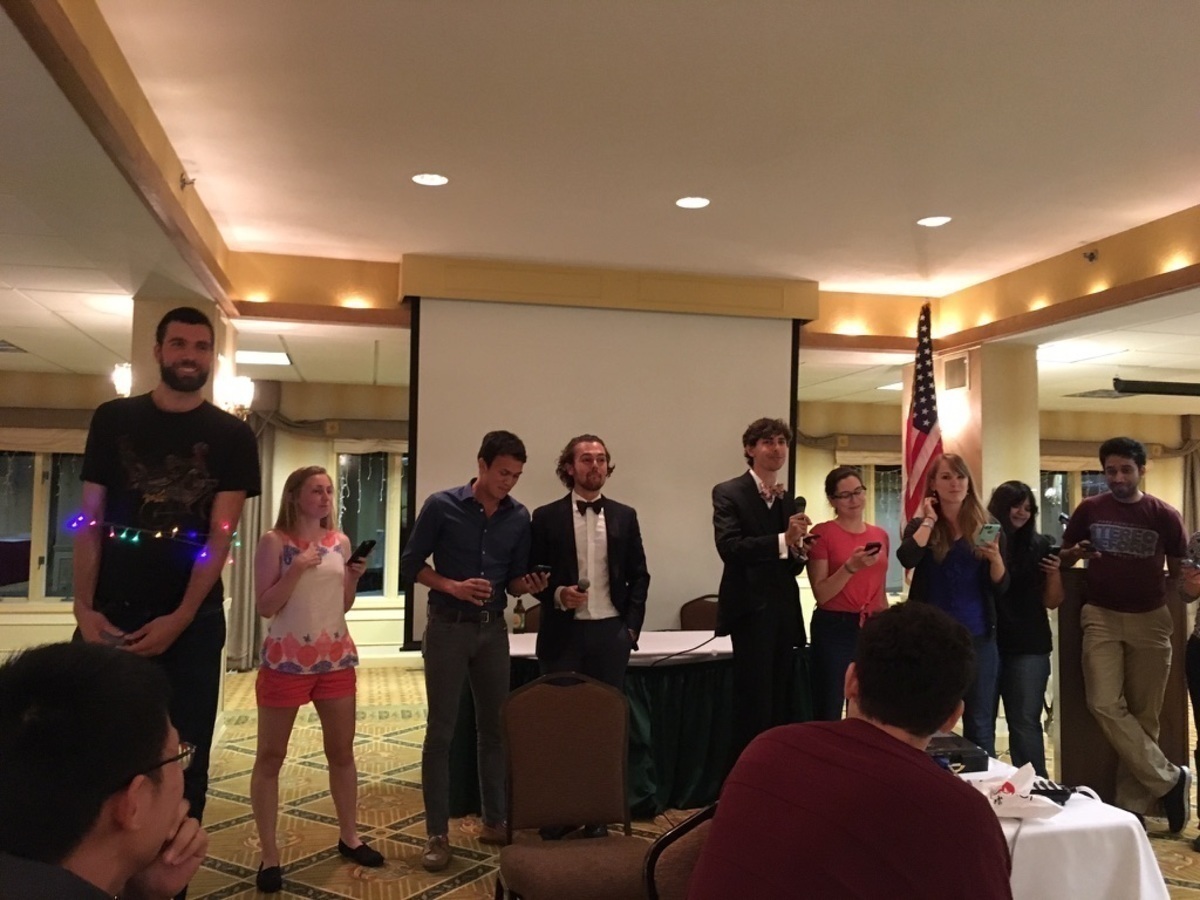PAOC Spotlights
The 2017 PAOC Retreat: Red Jacket Mountain View Resort

For this year’s PAOC retreat, faculty, graduate students postdocs and staff from MIT’s Program in Atmospheres, Oceans and Climate in the Department of Earth, Atmospheric and Planetary Sciences escaped Cambridge to North Conway, NH. The annual event, which took place over the weekend of September 22nd, 2017, and is generously supported by the Houghton Fund, gave attendees a chance to socialize and discuss topics pertaining to the community before events of the academic year picked up.
The weekend opened with “Scientist Bingo”, where guests were encouraged to meet other PAOC members and learn about each other’s research and career, trying to match a name to a space on the clue card.
The activities ramped up the second day with talks from Georgia Tech’s Jean Lynch-Stieglitz, MIT and Harvard’s Carl Wunsch and MIT’s Sai Ravela, followed by a panel discussion.
Wunsch opened on, "Inverse methods, inverse models, data assimilation, state estimation, control theory, and all that.” He began with the origin story of his interest in these topics: an open challenge by author and professor L. V. Worthington that no one could devise a scheme of the North Atlantic circulation that conserved properties and was in geostrophic balance. He continued with a high level description of an inverse problem (e.g. determining a pendulum's trajectory from a few uncertain snapshots of its location at times t1, t2, t3) and compared it to a forward problem (e.g. determining a pendulum's trajectory from its initial position and velocity).
Wunsch facilitated this discussion with a prop pendulum, which eased the audience through the mathematics of the issue. He went on to explain various complications on the simple inverse problem and how the Estimating the Circulation and Climate of the Oceans (ECCO) project is essentially a big, high-dimensional, inverse problem. The main takeaway from the talk is that data assimilation is not that complex, but rather it's a big data version of a simple linear algebra problem.
Jean Lynch-Stieglitz followed Wunsch with a talk on, "Model assimilation: how models are used to inform paleoclimate studies." During this, Lynch-Stieglitz flipped Carl's approach on its head. Rather than using observations to constrain dynamical models, she explained how one could use dynamical models to interpret paleoclimate observations. She walked the audience through three recent problems where she used paleoclimate proxies to compare today's climate with that of the last glacial maximum (~18,000 years ago): the strength of the walker cell in the Pacific, atmospheric carbon dioxide and the biological pump, and the strength of the overturning circulation.
In all three cases, the problem was an abundance of proposed theories to explain the patterns in the sparse and uncertain paleoclimate proxies. To manage this, she used dynamical climate models to test a number of hypotheses and try to converge on the most likely one.
Lastly, Sai Ravela commented on, "Uncertainty, measure & variation in the age of machine learning." Sai expanded upon the current scope to include some exciting new developments in machine learning and various applications to geosciences. One notable example was the development of an AUV that, when exposed to a phenomena like a volcanic plume or a tropical cyclone, interpret near real-time data and adjust its data collection method, thereby improving the quality and efficiency of its measurements. He also touched on how we think about problems pertaining to uncertainty in data assimilation, methods of representing uncertainty, and how the typical approaches like a Gaussian uncertainty distribution can be misleading.
Other activities included cocktail receptions, communal dinners, a talent and variety show and the annual State of PAOC discussion.
Special thanks to the 2017 Retreat Committee for organizing this event that PAOC members look forward to each year!
See photos and read about previous retreats.